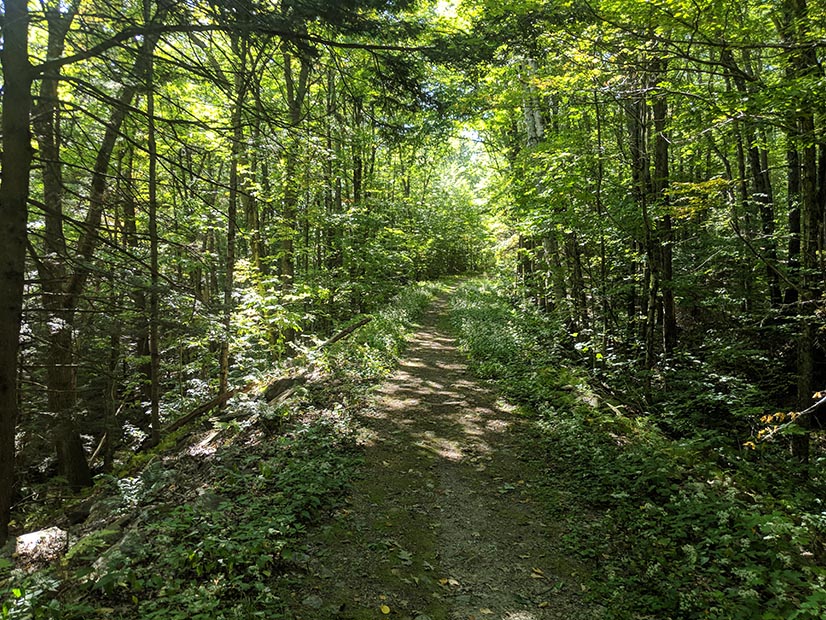
A proposed regulation that would disincentivize the siting of biomass energy generation facilities near environmental justice communities in Massachusetts has put legislators on edge.
The provision appears to push the burden of biomass siting to a small group of non-environmental justice towns, an outcome legislators say would be “patently unfair.” They would prefer to see the state’s environmental regulator extend a ban to the entire state.
Under the proposal, new woody biomass facilities sited within 5 miles of environmental justice communities would not be eligible for renewable energy credits through the state’s renewable portfolio standard.
In June, the Department of Energy Resources (DOER) filed the amendment with the legislature as part of biomass-specific regulations in its draft RPS class I and II update. Only certain wood byproducts are eligible for the biomass program.
The amendment is a response to public comments on the impact biomass combustion would have on environmental justice communities in the state, DOER Commissioner Patrick Woodcock said during a hearing of the legislature’s Telecommunications, Utilities and Energy Committee on Friday.
It’s also in response to the stronger stance on carbon emissions that the state took in climate legislation passed earlier this year, Woodcock said.
In addition to the siting provision, the DOER proposed increasing the biomass facility efficiency level from 50% to 60% to qualify for RPS credits. The biomass regulations are founded on a set of principles about the resource, including that its combustion is not carbon-neutral, Woodcock said.
While committee members were supportive of the DOER’s amendments, they pushed back on the environmental justice provision.
“One of the side effects of the policy … is that 90% of Massachusetts towns will not be eligible based on this regulation, leaving 10% — or 35 towns out of the commonwealth — as eligible to host a biomass fuel facility under this RPS system,” Sen. Adam Hinds (D) said. “It would seem that this regulation is systematically pushing plants into very specific areas.”
With that side effect in mind, six senators and three representatives sent a letter to the DOER encouraging it to “provide the same protections to all Massachusetts communities” as those for environmental justice communities, according to Sen. Michael Barrett (D), who read the letter for the record during the hearing.
“Please endorse formally what you are already promoting informally by supporting legislation disqualifying any new in-state biomass generation from qualifying as an RPS class I resource under state law,” he read.
Woodcock said the proposed change to the RPS is not likely “in itself” to lead to any new biomass facility proposals. And, he said, a pending biomass study mandated by the state’s new climate law is the right place for a “healthy discussion” on how to think about the resource under the state’s “increasingly ambitious” climate policies.
As proposed, however, the RPS changes give the impression that regulators have omitted the possibility of any new biomass facilities in the state, Barrett said.
Woodcock did not concur. He said that biomass is legislatively eligible for the RPS, and the new regulations would only apply to a facility’s eligibility for credits.
In addition, he said, out-of-state biomass facilities still would be able to participate in the RPS, and those facilities help to reduce natural gas use in the ISO-NE system.
The committee must return a report to the DOER shortly on the biomass-specific amendments. The department will then file its final regulations with the committee and the secretary of the commonwealth.
Utility-scale v. CHP
The DOER earlier this year revoked a nine-year-old permit for a 35-MW biomass facility in Springfield, citing a failure to begin construction activities. In its decision on the permit, the department noted growing public concern about biomass combustion and its effects on public health. It did not point specifically to those concerns as influencing its decision on the permit, however.
The new RPS provisions would prohibit the proposed facility from qualifying for credits because Springfield is an environmental justice community. It also would not meet the efficiency standard, Woodcock said.
Based on the current efficiency of the technology, there will not be any utility-scale biomass facilities built in Massachusetts, Chris Egan, executive director of the Massachusetts Forest Alliance, said during the hearing.
“What’s left under the regulations is high-efficiency biomass [combined heat and power (CHP)],” he said.
Those systems are most often designed to produce heat for a facility, with a bonus of making power from waste heat.
“Small, one-facility CHP units are a fraction of the size of the utility-scale plants,” he said.
Massachusetts currently has two facilities that qualify for credits under the RPS, and both are CHP plants. Those facilities have “operated without any issues or complaints for a long time,” Egan said.
In the RPS amendment, the DOER included a waiver to the efficiency requirement for existing facilities with the provision that they use primarily a non-forest derived feedstock.


